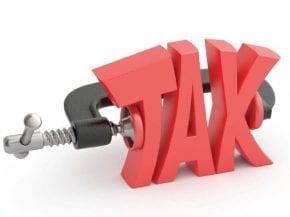- browse by category
- Audit Assistance
- Business and Taxes
- Celebrities in Tax Debt
- Cryptocurrency Taxes
- Economic News
- Foreign Banking
- Innocent Spouse
- IRS debt settlement
- IRS Headlines
- IRS Wage Garnishment
- Marriage & Divorce
- Payroll Tax
- Retirement
- Revenue Officers
- State Tax Headlines
- Stop IRS Debt
- Success Stories
- Tax and Politics
- Tax Attorney
- Tax Codes
- Tax Debt Help
- Tax Evasion
- Tax Levy
- Tax Lien
- Tax Payment Plans
- Tax Return Filing
- Tax Tips

Sometimes financial situations can get messy and the resulting back tax debt can add up and get really large, really quickly. When that happens, the Internal Revenue Service will take any and all actions to get its hands on what it says it’s owed. That will put any taxpayer or business in an uncomfortable position. Take a look at your two options for putting the puzzle pieces back together to solve your back tax debt.
Eliminating Your Back Tax Debt
Hire a Professional
Although they may not be available to everyone at all time, there are options for dealing with back tax debt. One option that should be considered is to consult and hire with a professional tax representative.
Hiring a tax attorney puts a skilled negotiator on your behalf. A tax attorney also knows the IRS’s special rules and procedures for imposing wage garnishments, implementing bank levies, and the ins and outs of tax court.
There is also the attorney-client privilege that comes with hiring a tax attorney, enabling you to disclose private financial information without it winding up in court.
DIY
On the contrary, the second option to deal with your back tax debt is to do it by yourself. Although not advised, it is an option.
This option won’t provide you with the attorney-client privilege for personal financial information that IRS agents would love to know. If that information is told to an accountant or financial professional, IRS lawyers can have an easier time getting it out of them through a subpoena or other legal maneuver.
Also, going it alone will make it harder to pursue complicated legal avenues with the IRS like the Offer in Compromise. The OIC enables those who owe back tax debt to the IRS to settle. It’s typically for those who are delinquent with more than $25,000 and take months to years to finish.
At first glance, the OIC might seem in your best interests, but there’s a balancing test that warrants a tax attorney’s advice. For instance, it requires you to give up your legal rights for disputing the total in court.
If your bill is ignored altogether, this will lead to IRS actions that bring more than mere inconvenience to a business or individual.
Something the IRS would probably do to a person who ignores their delinquent IRS tax debt is impose a wage garnishment. Wage garnishments seize your money before it makes its way to your wallet or bank account.
Don’t Ignore Back Tax Debt
If back tax debt is ignored, the IRS will send you a Notice and Demand for Payment, notifying you of the debt. Then, you’ll receive a Final Notice of Intent to Levy and Notice of Your Right to a Hearing giving the tax debtor a month’s notice of the garnishment.
How have you dealt with back tax debt? Comment below or tweet us @StopIRSDebt!
Leave Comments

Top Tax
secrets revealed
Sign up for our newsletter and be the first to find out when exciting IRS news happens. Yes, exciting. We're really into taxes.


